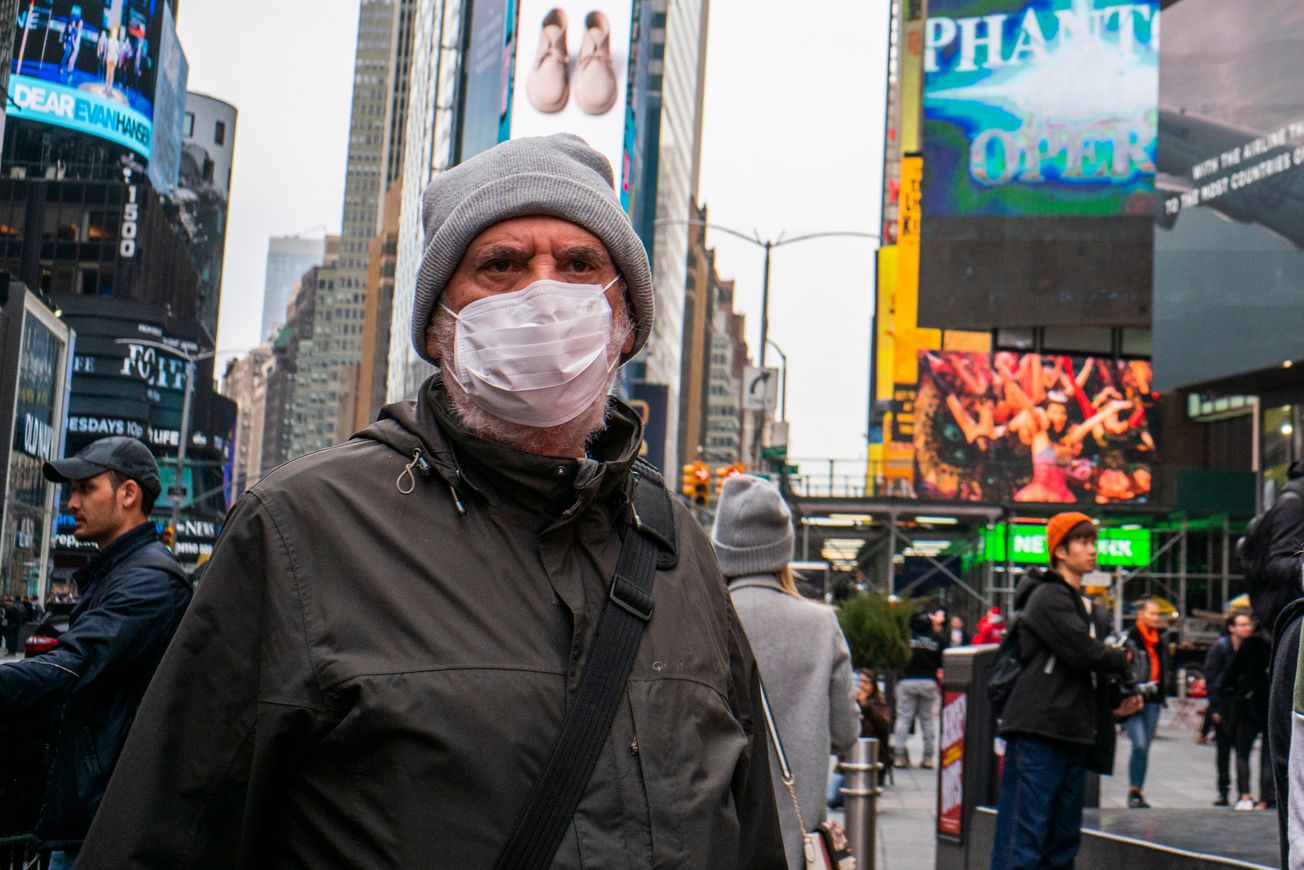New York is expected to see a drop in tourism related to coronavirus, which experts say could hurt business on Broadway.
On Wednesday, NYC & Company, the marketing agency for the city, revised its tourism outlook downward, projecting a decline in visitors in March, April and May related to the virus and economic volatility. While the impact on New York theater may yet be mild — with some weakness in recent sales and one Off-Broadway cancellation — the projections add to economic worries surrounding the virus and its upcoming impact on tourism-dependent industries.
The biggest declines in tourism are expected to come from international visitors, particularly with travelers arriving from China (a projected decline of 26%) and a 12% decline in visitors from Asia overall, according to data from NYC & Company. The town of Wuhan, China, where the COVID-19 virus is believed to have originated, is under quarantine, and the virus is most prevalent in that country.
New York tourism is expected to sharply rebound when demand returns, which NYC & Company is “hopeful” happens in the summer, as modeled by past scenarios including the SARS epidemic. With the expected rebound, 2020 should see 2% growth in tourism for the year, which is a slowdown from previous years.
At this point, however, NYC & Company, has said that the city is “open for business.”
TodayTix, a mobile ticketing app for Broadway shows and other events, has not yet seen a decline in sales, according to Chief Executive Brian Fenty, who notes that the company is following the guidance of government agencies as well as the guidance of the productions themselves. However, the company, which sells tickets in the U.S., London and Australia, does expect a future impact.
“So far, TodayTix has not seen a negative impact, since the virus’ outbreak given our local and millennial audiences, which are largely incremental to the traditional Broadway audiences. In fact, our market share increased over the previous weeks, and hit a 2020 high. As a global ecosystem, we expect to see a decline in future sales coming from the most impacted areas, predominantly in Asia and Western Europe. We are working with our partners to ensure we maximize sales for unaffected patrons,” Fenty said in a statement.
According to the Broadway League’s 2018-2019 audience demographic survey, 65% of admissions that season were made by tourists, with 46% of those tourists traveling from the U.S. and 19% from other countries. International attendance, in particular, has been on the rise on Broadway, with tourists from Asia, the Middle East and India making up the third largest group within international visitors to Broadway.
So far, a few New York businesses have been reporting an impact from COVID-19, according to The Federal Reserve Bank of New York. In its March report, released Wednesday, the bank said “a few contacts reported that the coronavirus has deterred visitors, though New York City hotels have continued to report good business. Broadway theaters reported that business slowed by more than the seasonal norm, following a brisk December.”
The Broadway League declined to comment on the economic impact of the virus.
The League and Actors’ Equity recently issued statements saying the organizations were monitoring the progression of the virus and following the guidance of city and state officials.
Theatre Communications Group, which promotes professional nonprofit theater in the U.S., is hosting a webinar Friday on how theaters across the country can prepare for its impact.
Off-Broadway, Carlo Colla & Sons Marionette Company’s “Treasure Island” at the New Victory Theater on 42nd Street has been canceled due to travel restrictions placed on the performers. The company is based in the Lombardy region of Italy, which is under quarantine. The show was scheduled to run in New York in the last two weeks of March.
There were six confirmed cases of coronavirus in New York Wednesday, after a 50-year-old man who resides in Westchester County and works in Manhattan tested positive for the virus on Tuesday. His wife and two children are now also confirmed cases, as is the neighbor who drove him to the hospital, Gov. Andrew M. Cuomo said Wednesday.
New York’s first case of coronavirus, a female health care worker who contracted the disease while in Iran, was confirmed Sunday. She is being isolated in her home, according to reports.
Worldwide, the virus has affected more than 94,800 people, with 3,238 deaths as of Wednesday, according to the New York Times. The majority of cases and fatalities have been in China.
The true economic impact of the coronavirus on the Broadway industry will likely be shown in weeks to come, depending on the severity of the virus and the fears surrounding it.
However, Mike Rafael, an independent sales and ticketing analyst and owner of Nexus Ticketing Solutions, notes that last week’s grosses were down year-over-year compared to the same week last year — $26,109,419 versus $27,159,271 — a phenomenon which Rafael says is notable given that a snowstorm impacted grosses during this week last year.
Kids’ Night on Broadway negatively impacted the grosses of several shows this week both years (and this year, the grosses of “Harry Potter and the Cursed Child” grosses were affected by an Autism-friendly performance with reduced ticket prices). But surveying the overall drop, particularly among long-running shows, Rafael sees the beginning of an impact.
“It will take time to determine the full effect, but yes, it is already having one,” Rafael said.
Among previous economic downturns, he notes that it took Broadway grosses four weeks to recover from Sept. 11, 2001 and one to two weeks to bounce back from the impact of Hurricane Sandy.
Nationally, the Federal Reserve is expecting a negative economic impact from the virus. The reserve cut interest rates Tuesday by half a percentage point in the hopes of jolting the economy in the face of “evolving risks” from coronavirus.
“The committee is closely monitoring developments and their implications for the economic outlook and will use its tools and act as appropriate to support the economy,” the Federal Reserve said in a statement.


























































